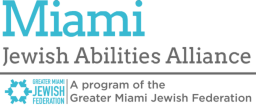EARLY INTERVENTION
Early Childhood Intervention means finding specific ways to help a child become as functional as possible. The first step of early intervention is evaluation. Once a child is evaluated, he/she can receive the appropriate type of treatment that he/she needs. Sometimes, getting your child help at an early age can enable him/her to reach his/her developmental milestone on target or close to target – to catch up to his/her peers.
The Statistics
If you suspect a learning disorder the most important first step is to support your learner’s journey to understanding their strengths and challenges.
Local Resources
Summer Here is a list of summer programs in Miami Dade county compiled by UM CARD.
The Mailman Center for Child Development is a clinical and academic center at the University of Miami’s Miller School of Medicine that addresses concerns of individuals with developmental disabilities and children with special health care needs through: research; clinical service; training for professionals; parent workshops and advocacy. The Mailman Center is one of the top 10 programs in the United States for children with neurodevelopmental disabilities and chronic illness. The staff at the Center give special care to identifying the concerns and priorities of each individual and family. The family and professional staff then work closely to decide which of those services would best meet all family members’ needs.
Florida Department of Education and Early Steps is a statewide system that supports Florida infants and toddlers ages birth to 36 months, with disabilities, developmental delays, and at-risk conditions and their families where they live, learn and play. Infants and toddlers are assessed in the following developmental domains to determine eligibility: physical, cognitive, communication, social-emotional and adaptive. Each child receives an Individualized Family Support Plan (IFSP) that meets his or her unique needs. There is no income requirement to qualify for the program and although families may choose to allow access to insurance or Medicaid benefits, families are not charged for services.
Child Find FDLRS Child Find in coordination with the school districts, locates children who are potentially eligible for services under the Individuals with Disabilities Education Act (IDEA) and links them with needed services. Child Find services help to promote general public awareness of programs and services available for young children who have or are at risk of developing disabilities. Service coordination for diagnostic screening, placement, training, and support is also provided. FDLRS-South Child Find personnel provides pre-school screenings of vision, hearing, development, speech/language and behavior. Screenings are conducted at multiple school locations throughout the district, early care and education centers, as well as in other facilities in cooperation with health departments, the Early Learning Coalition of Dade and Monroe counties and other community agencies. Child Find personnel also assists the Miami-Dade County Public Schools (M-DCPS) Pre-K Diagnostic Teams in providing comprehensive screenings to children referred to Child Find for evaluation.
JAFCO serves all children, from birth to age 22, who have been diagnosed with a Developmental Disability including Autism Spectrum Disorder, Intellectual Disability, Cerebral Palsy, Spina Bifida or Prader Willi, developmental delays and those at risk. The campus provides convenient access to families throughout Miami-Dade, Broward, Palm Beach Counties, and beyond. The Children’s Ability Center provides clinical and respite services.
The goal of Help Me Grow Florida is to promote healthy development for every child in the State of Florida. Help Me Grow is designed to address the need for early identification of developmental and/or behavioral concerns, and then to link children and their families to community-based developmental and behavioral services and supports. Jewish Community Services can provide links to Help Me Grow Florida.
University of Miami Nova Southeastern University’s Center for Autism and Related Disabilities (CARD) is one of seven state-funded, university-based outreach and support centers in Florida dedicated to optimizing the potential of people with autism spectrum disorders (ASD), dual sensory impairment, sensory impairments with other disabling conditions, and related disabilities. In addition to ASD, CARD also serves a variety of related disabilities including deaf-blindness, sensory impairments with other disabling conditions, and genetic disorders that may co-exist with autism symptoms (e.g., Fragile X Syndrome, Rett Syndrome, Tuberous Sclerosis, Angelman Syndrome, among others).
The Children’s Trust partners with the community to plan, advocate for and fund strategic investments that improve the lives of all children and families in Miami-Dade County. The Children’s Trust provides funding to organizations serving birth through 18 years of age and maintains a website of resources and a hotline for inquiry.


